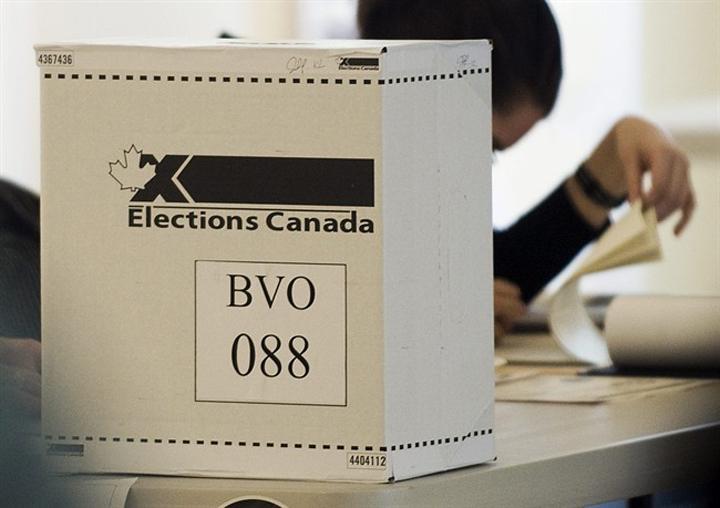Four days ago, I moved from Toronto to Ottawa to work for Global News’ Parliament Hill bureau. And if I want to vote in an Ottawa riding this upcoming election, I have some work to do.

Changes to voter identification rules this election will make it tougher for some people to vote, say a coalition of groups, including the Council of Canadians, the Canadian Federation of Students, and three individual voters. They’re even bringing an injunction against certain parts of the new Fair Elections Act.
The coalition wants Canada’s chief electoral officer to be able to authorize voter identification cards as valid ID, a power that was taken away in the act.
READ MORE: Groups seek court order to ease new voter ID rules for federal election
To show how the voter identification rules work in real life, I’ll use myself as an example. I would probably have most of these same problems under the old system, but here’s how it would work in the new one.
In order to vote, you need to prove two things, according to Elections Canada: who you are, and where you live.
The easiest way to do both these things at the polling station is to bring along a piece of ID that has your photo, your name, and your current address on it. The most common piece of ID with this information is a driver’s license.
- What is a halal mortgage? How interest-free home financing works in Canada
- Ontario doctors offer solutions to help address shortage of family physicians
- Capital gains changes are ‘really fair,’ Freeland says, as doctors cry foul
- Budget 2024 failed to spark ‘political reboot’ for Liberals, polling suggests
Luckily, I have a driver’s license. A lot of people don’t – for example one quarter of seniors in 2009 did not have a license, according to a recent Statistics Canada study.
Unfortunately for me, my driver’s license still has my Toronto address on it, so while it’s a good way to establish my name, it’s not a proof of address. So, one way for me to get the required voter’s ID (and probably something I should do anyway) is to change the address for my driver’s license online. Although Ontario says that the application takes just 15 minutes to complete, it takes four to six weeks to get the updated license in the mail.
I’m not moving to my permanent new address for another month, so I can’t apply yet. If I apply right as I move in, I should get my new license in time for the election date – assuming it’s later than mid-September. If I had moved closer to the election date, this probably wouldn’t be an option for me.
So what would I do if I didn’t have a driver’s license?
How about Option 2: bringing one piece of ID with my name on it (a license, passport, credit card or health card would do) and bringing something with my new address on it, like a hydro bill?
Again, it’s doable, but will require some effort on my part to prove my address.
See, I’ll be living with a roommate. The lease and all the bills are in her name, not mine. So I can’t really bring in a hydro or cable bill to prove I live at that address. I could bring in a bank statement, but I would of course have to change my address with my bank (again a good idea). I also primarily bank online, so I’d have to make sure that they sent me something in time for the election. So, it can be done, but I have to do some work.
Students in residences, homeless people, or people living in long-term care homes, for example, also probably aren’t receiving utility bills in their name. And while some of them might have been able to use the voter registration cards to prove both their identities and addresses last election, they can’t this time. They might need to get a letter proving their residence.
There’s a third option: getting a friend to take an oath saying I live where I live. This person has to have their own proof of identity and address, has to live in the same polling division as I do, and be willing to sign an oath. My roommate would probably be an ideal candidate, assuming she’s free on election day. She can only sign the oath for one person though – so her other roommate might be out of luck unless he has his own up-to-date ID.
So, yes, I will be able to vote, after filling out a form or two online. Not a huge effort really, but then, I already have a driver’s license and other ID. Not everybody does. And like me, not everybody has a utility bill with their name on it. Lots of people live with roommates, in residences of some kind, or on the street. They might not own a vehicle, pay property taxes or attend school – all ways to prove your residence.
I’m also motivated to do the work, minimal though it may be, to make sure I have the correct ID on election day. Is everyone? Hard to say, with a voter turnout of just 61 per cent last federal election.
With files from the Canadian Press



Comments